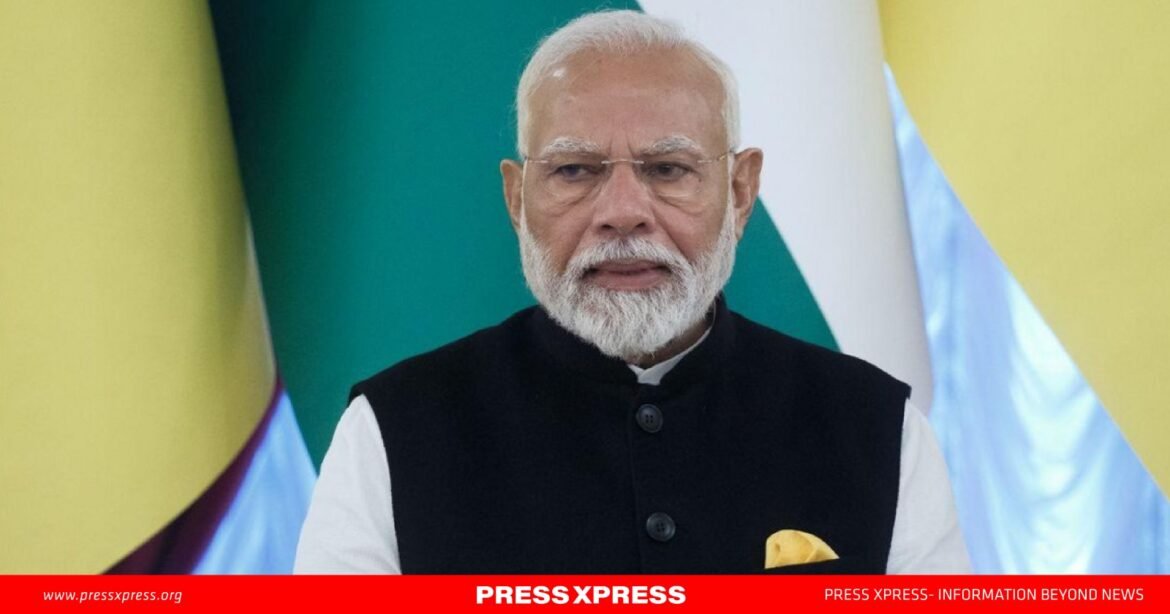In a rare and pointed exchange, the United States has dismissed accusations from India’s ruling Bharatiya Janata Party (BJP) that it is orchestrating a campaign against Prime Minister Narendra Modi and business tycoon Gautam Adani. The US Embassy in New Delhi, in a sharp rebuttal on Saturday, called the claims “disappointing,” emphasizing Washington’s longstanding commitment to media freedom and independence.
The controversy stems from the BJP’s claims, shared in a series of posts on the social media platform X, alleging that the US State Department has funded investigative reports critical of Modi and Adani. The reports, published by the Organized Crime and Corruption Reporting Project (OCCRP) and international outlets like the Financial Times, detail alleged corruption and questionable practices in the Adani Group’s operations in Kenya and Myanmar.
The US Embassy spokesperson rejected allegations of direct influence, asserting that “the US has long championed media freedom around the world.” However, the spokesperson acknowledged that the US supports independent organizations through programming aimed at journalist capacity-building but denied involvement in editorial decisions.
The BJP, however, doubled down, accusing the US of leveraging such funding to destabilize India, claiming it forms part of a larger “Deep State agenda.” These allegations tie the US government’s support for media organizations to broader geopolitical aims, implicating USAID, George Soros, and even drawing parallels with the opposition Congress Party.
Strained Diplomatic Ties
This is not the first instance of diplomatic tension between New Delhi and Washington under the Modi administration. Previous flashpoints include US criticism of India’s religious freedom record, comments on domestic political arrests, and a brewing scandal involving an alleged Indian plot to assassinate a Khalistani activist in the US. These incidents have tested the resilience of the bilateral partnership often touted as pivotal for global democracy and security.
Adding fuel to the fire are recent legal developments in the US, where the Department of Justice and the Securities and Exchange Commission have indicted Adani Group affiliates for alleged bribery and fraud. While India’s Ministry of External Affairs has refrained from commenting on these allegations, BJP’s narrative attempts to link such actions to an orchestrated effort to tarnish Modi’s image ahead of India’s 2024 general elections.
A Calculated Risk?
The timing of BJP’s accusations is notable, with Donald Trump poised to assume the US presidency following his electoral victory. Trump’s known skepticism of the so-called “Deep State” and ties with figures critical of US intelligence agencies, such as Kash Patel and Tulsi Gabbard, may embolden the BJP’s stance. Analysts suggest that this pivot could reflect an effort by the Modi administration to hedge its bets on a more favorable Trump-led White House.
At the heart of the issue is the broader debate on democracy and press freedom. While the US highlights its commitment to an independent press as a cornerstone of democracy, India’s ruling party portrays investigative journalism as a tool of international interference.
This episode marks a troubling chapter in US-India relations, with both sides trading barbs over values they claim to uphold. For a partnership hailed as a counterbalance to authoritarianism in Asia, such public discord underscores the fragility of shared democratic ideals in the face of political and economic pressures.
As both nations navigate their domestic challenges and recalibrate foreign policies, the unfolding saga may serve as a litmus test for the resilience of one of the world’s most significant bilateral relationships.


